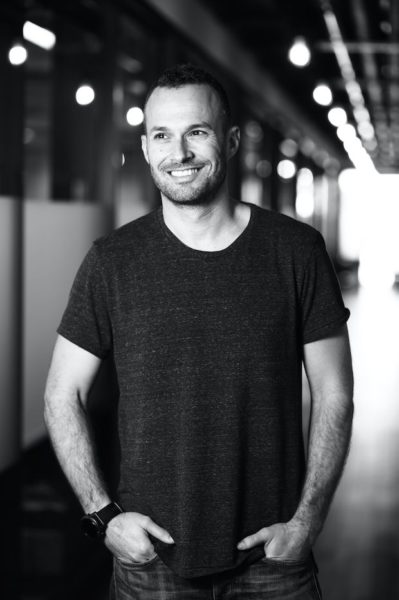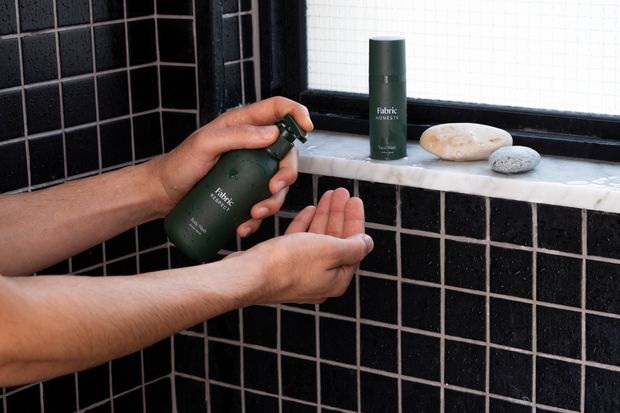Text size
“The skin is the biggest organ of the body,” says Assaf Sahar, the founder of Fabric, a new men’s skincare firm. “The fabric of your body, in a way.”
Sahar, 40, formed the company a year and a half ago, after years of working in the biotech industry, hoping to create a skincare line that was both eco-friendly and contained the most sophisticated ingredients. Development of the first product line took 15 months, with each item going through a dozen-plus iterations. “It took tons of time, and it was far more expensive than I anticipated,” laughs Sahar, a former McKinsey consultant with a masters of finance from the London Business School.
Prior to launching his own business, Sahar worked for EvoGene, a biotech firm in Tel Aviv, where he “was exposed to some of the best biochemists in the world,” some of whom helped in Fabric’s product development. Dialing in the right scent took the most time. Sahar wanted a fragrance made up of only natural components like essential oils; the majority of the industry uses artificial components, he says. “Eliminating stickiness” from the moisturizer was also challenging, as was getting the “super minimalist” packaging right.
THE ITEMS
Fabric currently offers six dermatologist-tested products. They are targeting guys who care about personal wellness, but might not yet practice regular skincare, men like Sahar “who don’t have any special passions for shopping or discovering new brands but tend to stick with stuff that works for them.” The lotions blend all-natural ingredients such as sage extract—a calcium and vitamin A-rich anti-aging agent—hyaluronic acid, which helps skin retain moisture, and Tiger Grass, which rejuvenates.

PRICE
Inspired by newer self-care brands like Harry’s and the Dollar Shave Club, Fabric operates on a subscription-based model. It costs $40 for a bi-monthly Standard Set (facewash and moisturizer); $36 for the bi-monthly Body Set (body wash and deodorant); and $40 for the bi-monthly Shave Set (shaving cream and after-shave balm).
The model is meant to encourage daily usage, Sahar says.
“In order to fight age defects and keep your skin clean, hydrated, and healthy, you need to do it each day, ideally twice,” he says. “It needs to be part of your ritual, part of your regimen.”
The boutique, direct-to-consumer model also allows Fabric to get precise on the supply side, allowing Sahar to “plan shipping and inventory better” and reduce waste.

WHAT’S THE GOOD?
According to Sahar, Fabric’s formulas contain “only clean ingredients which are free of synthetic additives, toxins, parabens, SLS, sulfates, phthalates, and alcohol.”
Sahar purchases most of Fabric’s raw materials from zero carbon-footprint suppliers. One of Fabric’s most used ingredients, for example, is jojoba oil, which they source from a carbon-neutral Israeli farm that employs solar energy. The products, which are certified vegan and assembled in New York, have a piney scent, with hints of sage and sandalwood. The lotions and body wash come in airless “pharma-grade” recyclable pump bottles made in Germany; nearly all of the packaging is recyclable. “We try to eliminate, as much as we can, the use of carbon,” Sahar says.
WHAT’S NEXT?
Though still new, Fabric has several hundred subscribers, Sahar says, all of them in the U.S., the only country they currently ship to. Sahar, who splits his time between New York, Tel Aviv, and Los Angeles, says they have several products under development, including a coral-safe sunscreen, an exfoliator, and eye and night creams. Eventually, he hopes to open some storefronts.




